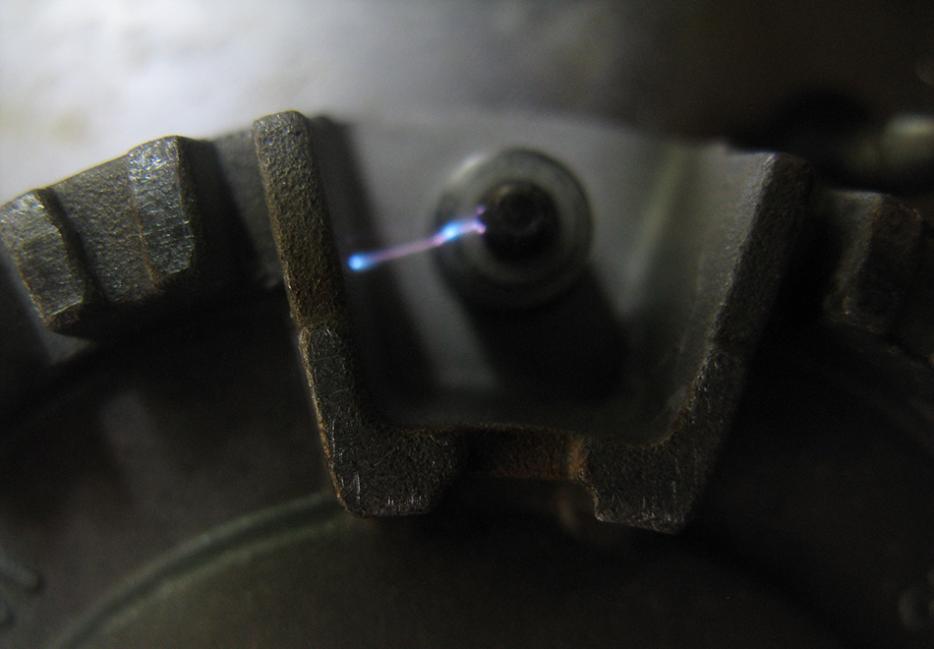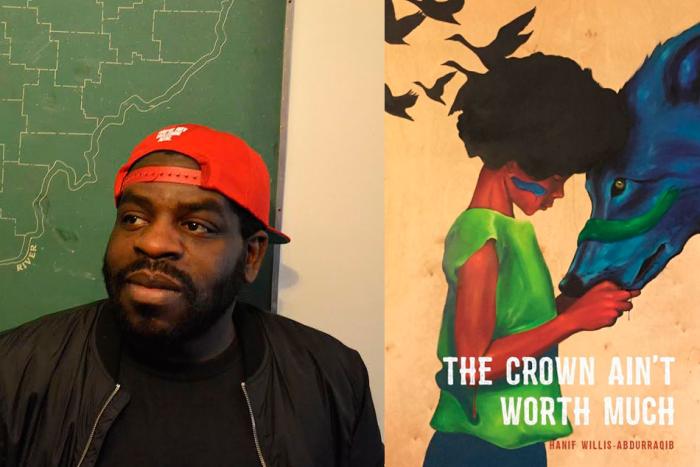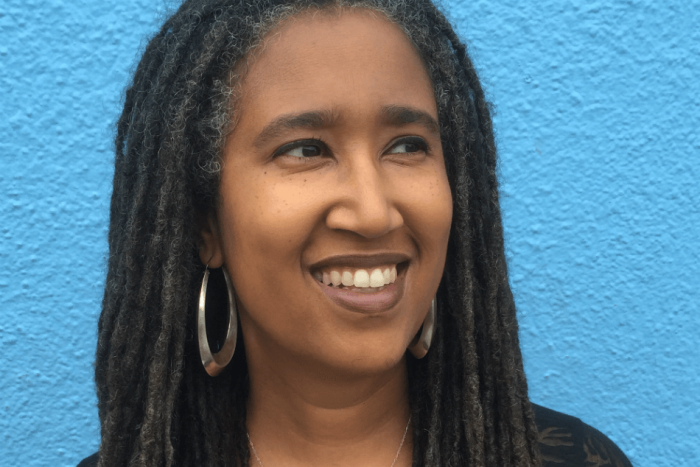One of the many things adulthood hasn’t brought me is certainty. I’m the oldest I’ve ever been and I’ve never felt more opaque. “Age doesn’t necessarily bring anything with it, save itself,” Maggie Nelson writes in The Argonauts. Brutal; true.
I wasn’t always rudderless. I grew up cognizant of the inexplicable luck that supplied me with direction even as a child. Through no effort of my own, I was coherent; I was consonant with the world, or at least as consonant with it as any of us can be in spite of its meanness and horror. I didn’t like activities I didn’t do well, so being bad at them didn’t matter to me. I liked doing what came naturally—reading, writing—which meant there was no need to establish a boundary between recreational endeavors and intentional work. (I still don’t really understand the idea of a hobby.) My parents were not overly affirming and I wasn’t often the best at anything, even in the small, exurban classrooms of my childhood. But I believed in myself. I believed I would excel and that there were a variety of fields I could excel within. And I did.
Meanwhile, my brother never knew what he was good at. Whether for work or for fun, his enthusiasms seemed optimistic but arbitrary and consequently brief. For him, it was as if every pursuit came just as hard or as easy as the next. I couldn’t fathom it and I didn’t have to.
I’m not saying life wasn’t hard or there wasn’t pain. I’m saying there was momentum. I like a challenge, but I at least want to be suited to the attempt. Some women have trouble wanting, but my instincts were indistinguishable from my cravings. My wanting was the leash that pulled me through my life. It kept leading me to the right things.
Until one day the leash was off. I can’t identify what occasioned it, I don’t think it even works that way—with a single, switch-throwing moment—but at some point in the last year my urgency to sustain or possess something (an emotional state, a relationship, a milestone of financial success) evaporated, and my me-ness along with it. I can still put one foot in front of the other, but without conviction. I recall what goals used to be important to me—making a home in a city I love, establishing myself as a writer, arranging a life of regular adventure—but those lures aren’t baited anymore. I am radically disincentivized.
Women are so stuffed full of bad prescriptions: what we should want, what we should do. Anything to do with selves, with The Self, leaves women doomed because her self cannot be the self, the universal, the correct.
For me, motivational fogginess isn’t merely inconvenient or tedious, as prolonged indecisiveness always is. It is a crisis. The best metaphor I can use for describing the change that rendered me a cavity is that my pilot light went out. “Selfhood,” writes psychoanalyst Adam Phillips in Intimacies, is “constituted through prior and assured knowledge of what [the self] desires.” I like to think about my decision-making in an expanded context, within a network of explanations that give my actions a narrative frame, but I can’t approach the question of why I want when I don’t even know what I want.
*
“Know thyself” is one of the Western world’s most enduring aphorisms but women living by this maxim are usually dismissed as narcissistic navel-gazers, selfish neurotics who fail to engage meaningfully with society. Because women are still treated as the exception to men’s rule, our self-scrutiny is superfluous. The fruits of a man’s soul-searching are presumed to be insights into the whole of humanity but a woman’s self-insight is useless to the herd. It is banal, indulgent. It does not escape her boundaries. “Impossible to conceive a female life that might extend outside itself,” writes Chris Kraus in Aliens and Anorexia. “Impossible to accept the self-destruction of a woman as strategic.”
Maybe self-insight is precluded by femaleness; maybe there is nothing of substance there to investigate. “Most women have no character,” wrote Alexander Pope and he could be right. We’re so stuffed full of bad prescriptions: what we should want, what we should do. Anything to do with selves, with The Self, leaves women doomed because her self cannot be the self, the universal, the correct. But nor can our originality be useful, or socially permitted because we don’t operate in integrity or wisdom. Our stumbling is the stumbling of the lower order, of beasts, of non-human animals.
Is it too banal to admit that once my absence of desire registered as something long term, I started thinking about dying, as in dying on purpose?
*
Here was my primary concern about killing myself: what if I kept living, and the pilot flame came back, and I thought I’m so glad I’m still here? This is a tricky mental game to play because if you’re dead, you’re not bothered by what you would have missed if you hadn’t been. No one is more insulated from hypothetical futures than the dead.
But I wanted to check, just in case. I kept trying to know myself—if I still had a self, if I’d ever had one, if I was more than a lump of matter hauled around by an invisible hand. Was there something behavioral, circumstantial, that I could adjust to revert to my factory settings? Was there something new in my situation that had upset my equilibrium, like when someone switches to a new detergent and finds they are beset with a rash? Perhaps choosing death now was akin to buying new glasses while the “lost” pair was perched on my head. Surely there must be something obvious I was missing.
I started listing things I was grateful for at the end of every day, which felt like throwing a penny into the Grand Canyon. (A funny email from a friend, an editor’s encouragement, a town-building phone app I played with humiliating frequency, general freedom from physical pain, my pets.) I journaled, trying to propose meaningful changes, but instead I often only wrote clueless laments:
I can’t see any way to improve or eliminate this sadness, nor do I have the energy to. What matters to me anymore? What do I care about?
What do I want? What would make this better?
The other concern(s): drugs have no appeal, not even music holds power.
One entry reads, in its entirety:
That your despair is inaccessible and unintelligible to others
That the confusion you live inside cannot be alleviated or improved upon
That you are beyond making repairs to yourself
I am the “you”; my self is speaking to my self.
In Repetition, Rebecca Reilly quotes a survivor of a jump from the Golden Gate Bridge: “As my hand left the rail I thought, I can fix everything in my life but this.” I was moved by this when I read it in 2015, when I still considered suicide as personally unnecessary and irrelevant as vaping. But when I thought of this line now, it simply didn’t apply. The greatest pleasure I’d known had been the pleasure of fruitful effort, rewarded focus, accretive success. It was the pleasure of purpose and it had deserted me.
I didn’t need to fix everything, I just needed to fix the only thing. And not only was I ignorant of how to fix myself but I didn’t see the value in it. In other words, I didn’t want to.
*
Years ago, in my twenties, when I was deep in a yoga phase and earnestly studying or at least considering every piece of “Eastern” wisdom that trickled down to me from an almost inevitably white instructor, I wondered how to balance prioritization of self-familiarity with my sense that truly good and urgent application of the self should involve service: supplying direct empathy and care to others. The first limb of yoga concerns interpersonal conduct; it testifies to the importance of truthfulness, non-violence, and so on. But I didn’t find many teachers who were especially concerned with that, at least not enough to explicitly address it. I, along with many others, was told to stay present inside myself, to notice my reactions and impressions, to minimize engagement with the external. “Studying ourselves is pretty much all we do in here,” one teacher once said, offhanded and honest.
Theoretically this internalized attention leads one to become more gentle and thoughtful in their actions, but I wondered about the possibility of falling down a rabbit hole of ever mounting self-preoccupation. At what point were we just a bunch of assholes fascinated by our own egos, giving ourselves permission to neglect responsible participation in the world? Wouldn’t part of self-knowledge be recognizing avoidant tendencies, the grand excuses made to stay self-absorbed? Shouldn’t part of self-honesty be saying “enough with myself already?”
This dilemma is an old one: can we ever transcend the vehicle of the self? Anne Carson details a particular flavor of this question in Decreation with the examples of Marguerite Porete and Simone Weil, two women who each expressed “a need to render back to God what God has given to her, that is, the self.” Carson quotes Porete: “I cannot go towards God ... without bringing myself along.” And then Weil: “We possess nothing in this world other than the power to say ‘I.’ This is what we must yield up to God.”
This was the only question that remained: I said I wanted nothing, but did I want to die?
To work with yourself to erase yourself, negate yourself—this is one interpretation, perhaps, of what asana addicts and dilettante Buddhists like myself hoped to do, even as we nodded our heads when told there was no goal, no vector, just the constancy of an imperfect, or always perfect, practice. It’s plausible to me that the best thing a person can do may be removing themselves from the world, folding themselves away into a cave where they create minimal disturbance, tax few resources, and risk little disruption. Remove yourself as one more chaotic element in the world that inflicts unintentional yet inevitable suffering on others. The ultimate commitment to that, surely, is a voluntary death.
*
Unlike Porete and Weil, I had no god to melt into. I remembered what it felt like to be wildly animated by my desire but to re-experience that seemed impossible. I did not even want enough to want to want again. It was like being stranded on an empty shore and watching everything I cared about on the deck of a departing boat as it receded to invisibility against the skyline—and feeling nothing. No, even better: imagine the shore is without waves, without lapping water. No ocean sound, no wind. Imagine it is a shore as still and empty as one frozen in a snow globe.
I worried hysteria and insensibility would be assumed by anyone I confided in, like I needed to be restrained or soothed or dissuaded or worse, that I wanted to be. I didn’t want anything, that was the whole point. I hated the idea of someone trying to convince me not to do it—the inherent, unavoidable condescension in that. It was a response too insulting to risk. I might have lost my verve but I wasn’t suddenly incompetent. If I decided I should be dead, I would be.
When I was a young adolescent reading soapy teen books, I delighted in the rhetorical power of suicide, suicide as punishment, as demonstration: this is how much you hurt me. What a remarkable weapon to have in one’s arsenal, the relational equivalent of a nuclear bomb. Those scenarios are all about what Jenny Zhang calls “reap[ing] the joys of being mourned.” But there was no reaction I hoped to provoke, no attention or apology for which I angled. This contemplation wasn’t about other people. It was a possible solution—practical, efficient—to a problem contained inside me. (“Impossible to conceive a female life that might extend outside itself... ”)
I understood why a sort of maternal distress was the most likely reaction, though. What options do you give your friends or loved ones when you tell them, I think about being gone, on purpose; I think about it a lot? They’d take it to be evidence of an emotional extreme and yes, sometimes I was emotional. Once I ran thirty minutes late to meet a friend during her lunch break and then broke into tears the moment I arrived. But mostly I felt empty, the equivalent of the artfully bundled cloth stage actors must pretend is a baby. I couldn’t watch people I care about try to calm the empty fabric.
The self requires desire, and I had none. I still functioned but I couldn’t find a reason to function anymore.
So I didn’t talk about it.
*
Ever pragmatic, I sketched out strategies in my head of whom I’d leave in charge of this and that, how I’d time my requests of them so as to neutralize whatever preventative action they could take, what I could do in advance to mitigate the bureaucratic burdens of my existence. I should make it as painless for everyone connected to me as it could possibly be. (Could the discovery of my body by someone who loved my body, for instance, be circumvented? I thought yes, I could die at home and still figure out a way.) I imagined some people who were particularly close to me would be devastated, and I would have liked a way to convey to them that they shouldn’t be sad because I wouldn’t be sad, that against the background of a meaningless universe, my coming and going was deeply meaningless too. But I knew they wouldn’t understand.
I was pretty thorough in my plans. It was an easy project to apply my imagination to. Let this be the last desire I execute cleanly, if it is the only desire left to me.
This was the only question that remained: I said I wanted nothing, but did I want to die?
*
“If it doesn’t break today, it will break tomorrow,” writes the Thai monk Ajahn Chah. “If it doesn’t break tomorrow, it will break the day after tomorrow.” It doesn’t matter what the “it” is; the “it” is everything, anything. All the elements of life that we wish we could control or protect. For a long time I didn’t understand how we’re supposed to live with the impossibility of anticipating our most convincing whims. What if you don’t want to bear a baby until you’re too old to conceive? What if you sink all your money into a home in a town you immediately want to escape? What if you desire freedom and flings in your early years only to find yourself elderly and alone and wishing you’d coupled? I still don’t understand how we inoculate ourselves against regret, but at least now I recognize: what grace to have a whim at all. Regret is a luxury. The real fate to fear is being devoid of the urges that let regret whirl up.
The problem with desire is that it predicts nothing, guarantees nothing, and it is necessary. For me anyway, it is necessary to live, to be alive. That’s what I know about my self.






